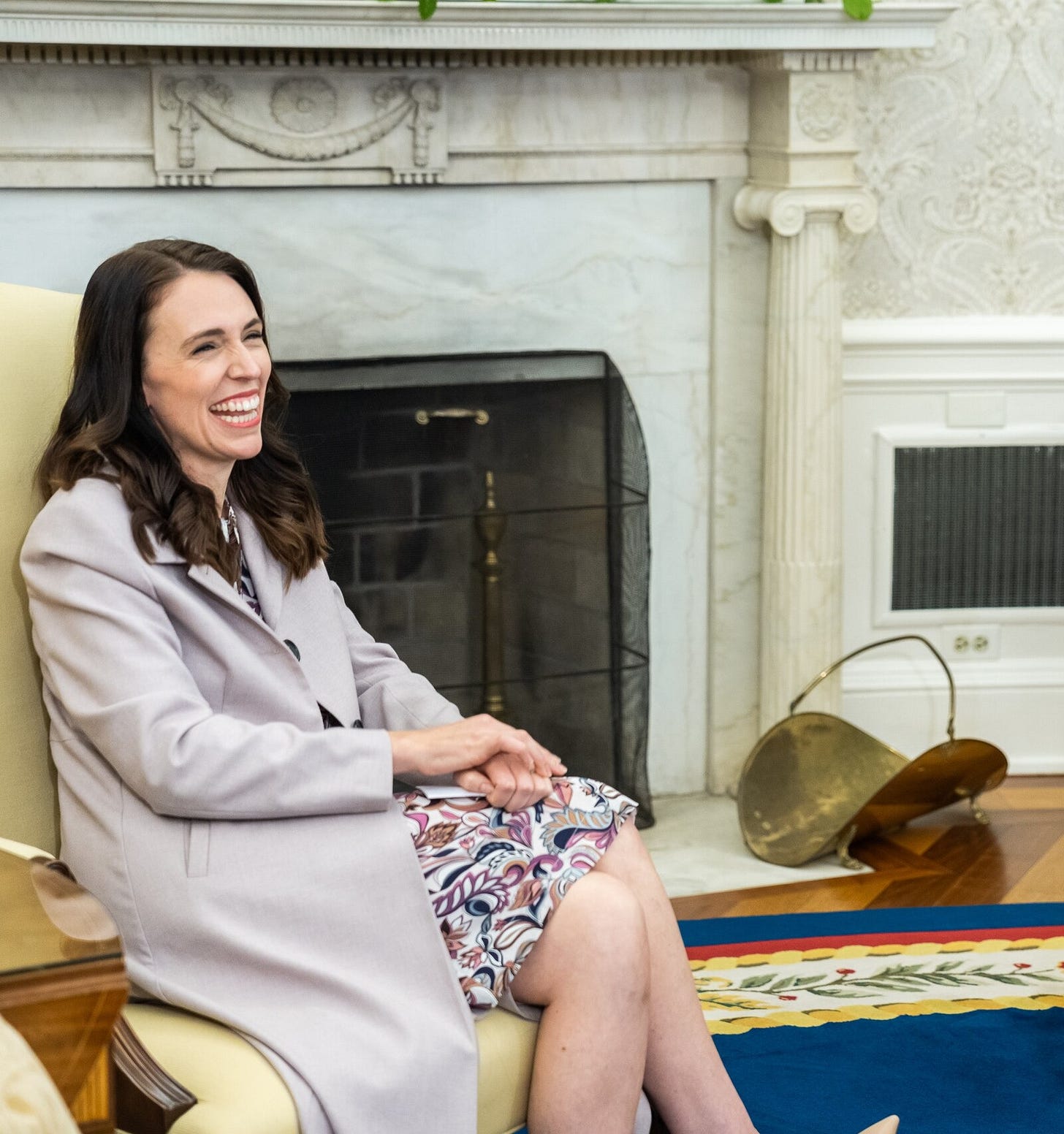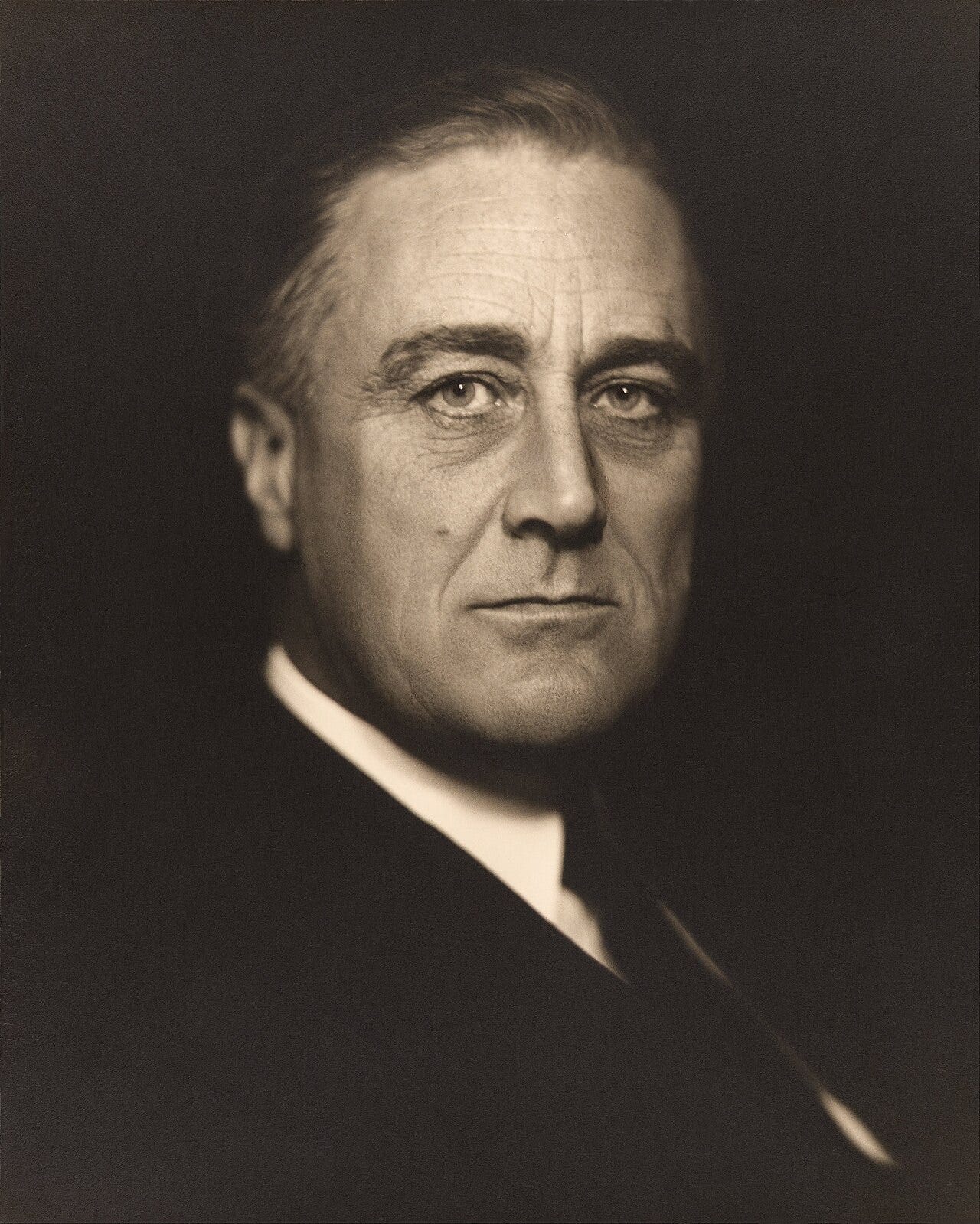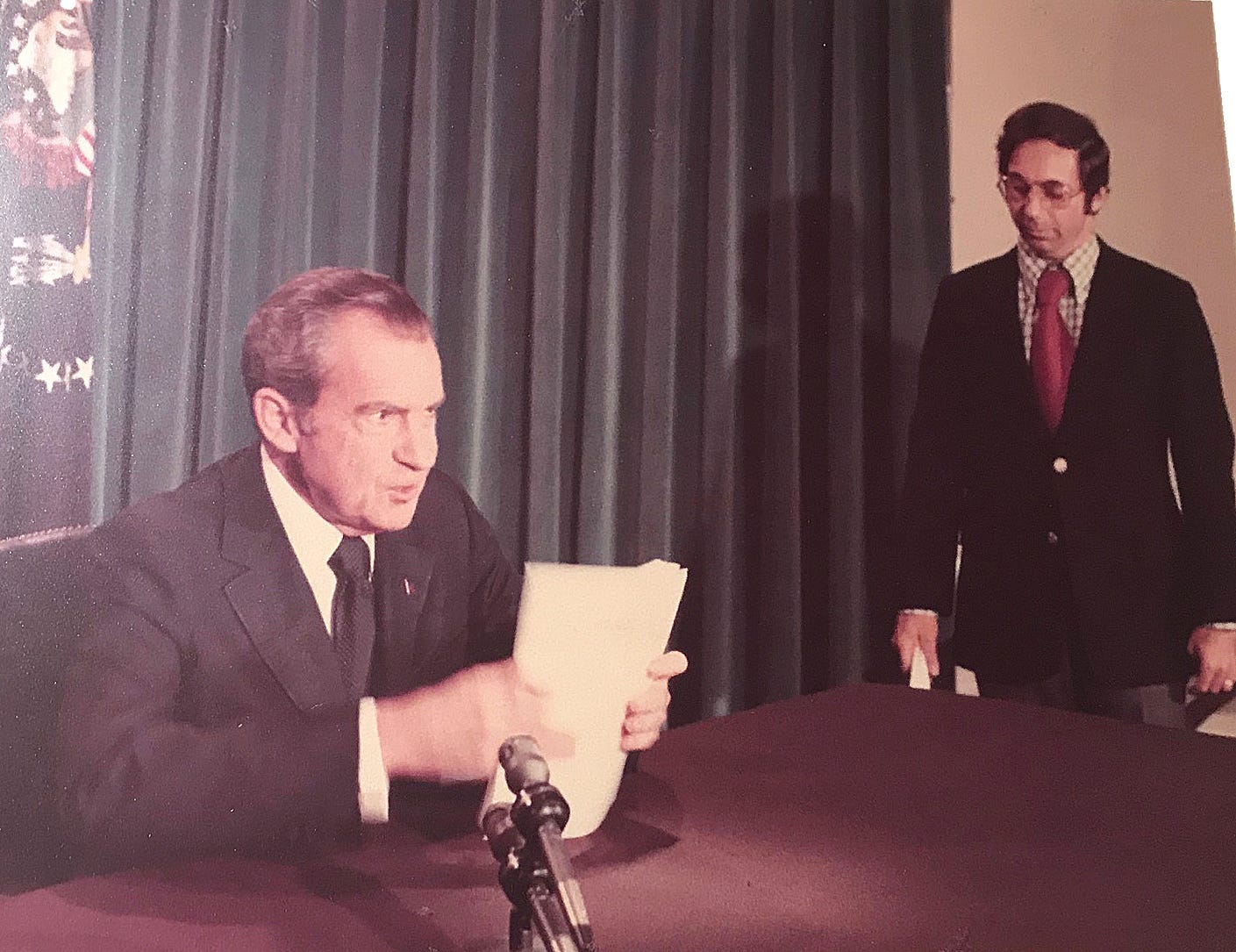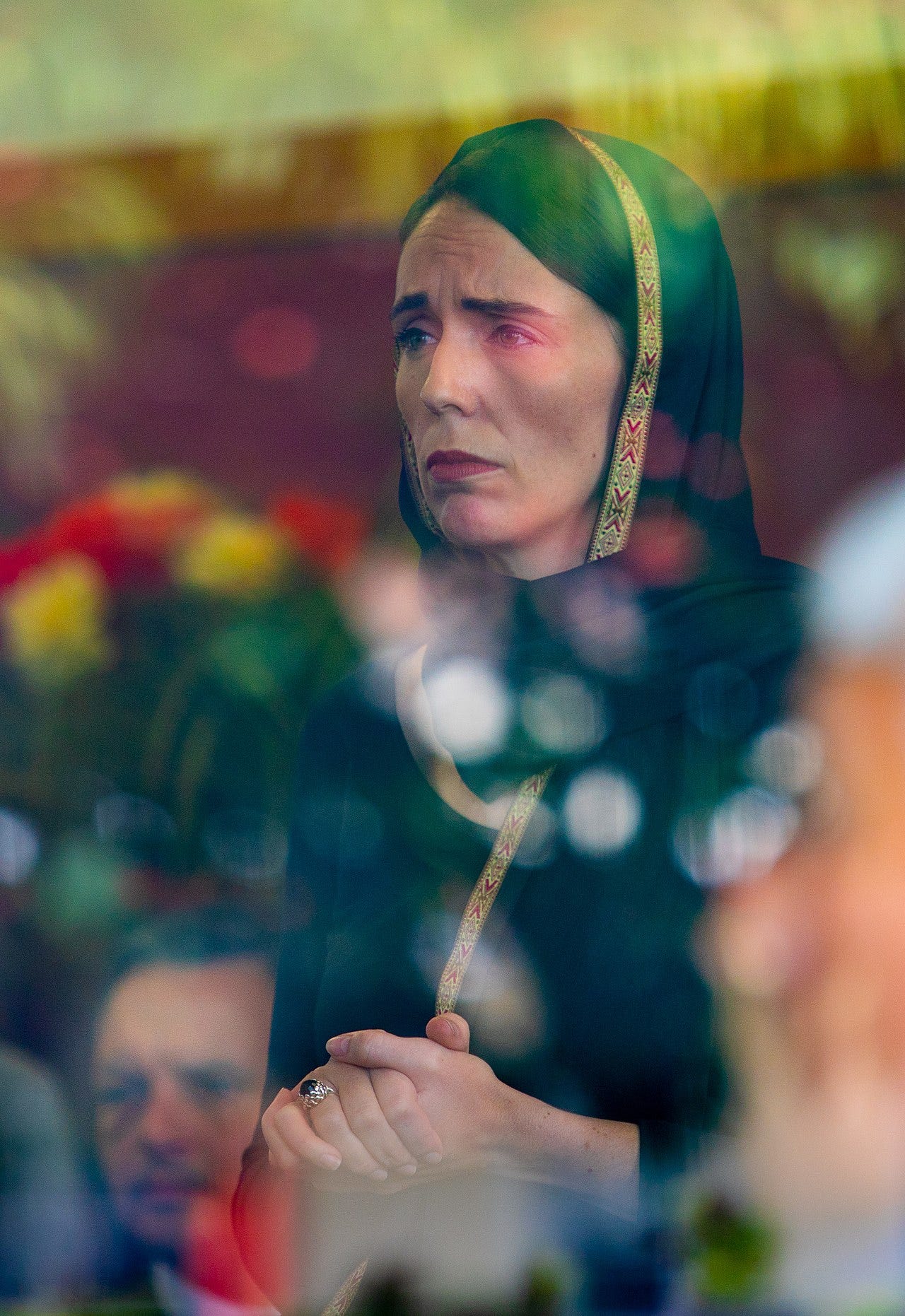Chapter 66: In Search of Authenticity
A Lesson from Jacinda Ardern: Prime Minister of New Zealand from October 26, 2017 to January 25, 2023

Jacinda Ardern is the most self-aware, authentic politician in the world today. This chapter begins with some comments about American politics and then turns to a defining moment in Ardern’s time in office. Next week’s chapter will also be devoted to Ardern, a woman from whom we in America have a lot to learn.
What would a history of hatred in American political life look like? One would learn that hatred has often reared its ugly head. Here are two examples.
On October 31, 1936, three days before the Presidential election, Franklin D. Roosevelt addressed a cheering crowd at Madison Square Garden.
“We had to struggle with the old enemies of peace—business and financial monopoly, speculation, reckless banking, class antagonism, sectionalism, war profiteering. . . . Never before in all our history have these forces been so united against one candidate as they stand today. They are unanimous in their hate for me—and I welcome their hatred.”1

When looking at these words, one must keep in mind that Roosevelt was a gifted public speaker. He was a charismatic man, and there was an aura about him which breathed reassurance. The statement itself is interesting. Roosevelt said that there were a set of people who hated him. That was the simple truth. This was followed by what has become a memorable line. He welcomed their hatred. In other words, you can hate me; but you can’t hurt me. Finally, note that Roosevelt does not say that he hates anyone. Hatred is beneath him. He does not hate. He is hated. And he can handle it.
The second example is provided by Richard Nixon. In the present environment, it is hard to remember that there was once a time during which scandals had consequences. Back in that long forgotten era a half century ago, Nixon, who was re-elected to the Presidency in a landslide of historic proportions in 1972, was forced to resign the office on August 9, 1974, because of his participation in the Watergate scandal.
The day he resigned, Nixon delivered an address which had the nation on pins and needles. It appeared that he was about to fall apart before our eyes.

Here is what he had to say about hatred:
“Always remember, others may hate you – but those who hate you don’t win unless you hate them, and then you destroy yourself.”2
As noted in Chapter 22 on December 27, Nixon indeed did hate the people who hated him, and he did destroy himself.
For decades following the end of World War II in 1945, the United States was held together by external pressure. At first, it was the fear of communism. After September 11, 2001, it was the fear of terrorism. The nation swapped out the Cold War for the war on terror. Fear of external terror has subsided. The nation has turned inward, in search of “the enemy within.”3 Our political discourse is now filled with hatred and awash in vitriol. Expressions are used routinely today which would have been unthinkable in the past.4
Is there a way out of this predicament? The political career of Jacinda Ardern, Prime Minister of New Zealand from October 26, 2017 to January 25, 2023, serves as an inspiration that in a democratic nation in this day and age, politics can and should be better than it is in the United States now.
Jacinda Ardern had no idea of the challenges she would have to meet as the political leader of her nation. She and her Labor Party came into office with a program to advance the nation quickly. Ardern was a very young woman when she was sworn in, only 37. Given the gerontocracy which American politics has become, this observation alone gives one pause. Not incidentally, she was pregnant.
When Harold MacMillan (1894 – 1986), Prime Minister of the United Kingdom from 1957 to 1963, was asked what the greatest challenge to a statesman was, he is famously said to have responded: “Events, dear boy, events.”5 By which he meant that things happen for which one could not possibly have been prepared. That was startlingly the case with Ardern’s incumbency.
The date was March 15, 2019. Ardern was in a car, taking care of business. One of her staffers was on the phone. She leaned forward and said, “Prime Minister, there’s been a shooting in Christchurch.”6
New Zealand is not the United States. Shootings there are rare. There are an average of 10 fatal shootings a year. And these are not mass shootings. There are an average of 10 victims.7 Put yourself in Ardern’s shoes. What do you need to know? How quickly can information be gathered?
She needed to know if the government had any reason to suspect the shooting prior to its taking place. What was the motive of the gunman? Was he alone or were others involved? What did she need to know prior to assuring the citizens of Christchurch and indeed of the rest of the country that the threat posed by the gunman was contained?
Ardern learned very quickly that the perpetrator acted alone. He was an Australian who had come to New Zealand to murder members of the Muslim community. He had attacked two mosques with a collection of weapons including an AR-15. He had delivered a lengthy manifesto.
This is what she found out with remarkable speed. The next question was: What should she tell the nation? And then: What should she tell the family members of the worshippers who were killed?
Timing was everything in this case. She had to move quickly. She had not bargained for this. She was not trained for it. It was literally a bolt from the blue. There is no time for public relations. There is no time to try to figure out who you are. You have no choice but to go with your gut.
“I began pacing. This was nearly impossible to comprehend. A manifesto. A planned attack. So much hatred. I was going to have to share information with the country, make sure people felt calm and safe, when this attacker’s plan was to make everyone feel scared and fearful. I walked back-and-forth. . . . I had to focus. To map out a plan. . . . I swore. I ranted.”
What did she say to the nation?
“An outsider came and attacked our people. Some of them might have been born somewhere else, but this was our community. They are New Zealanders. They are us. . . . This is one of New Zealand’s darkest days.”
Later that night, she phoned Gamal Fouda, the Imam of one of the mosques that had been hit.
“Hello, Imam. This is Jacinda Ardern. I am sorry. I am so, so sorry.”8
Donald Trump, in his first term as President, phoned Ardern and asked if there was anything America could do. She replied:
“You can show sympathy and love for all Muslim communities.”9
On March 16, the day after the attack, Ardern borrowed a black scarf and put it over her head, covering her hair; and she entered a community center where leaders of the Muslim community had gathered.

Imam Lateef Zikrullah Alabi rose and was the first to speak.
“Of all the things he could have said in that moment, he thanked us. He thanked us. Even as I heard the words, I found them hard to comprehend. He thanked us for being there. He thanked New Zealand and New Zealanders for their support. He thanked the country for sharing in his community’s grief. The attack was fueled by hatred, but he spoke about the outpouring of love.”10
The above photograph of Ardern was taken through the window of the meeting.
“[This] would be called a ‘defining image’ of my leadership, ‘an image of hope,’ ‘the face of empathy.’ But all these comments felt backwards to me, like an inversion of reality. Even now, when I see this picture, when I think of the moments before the camera recorded this image, I do not see myself. I see a good and gentle soul who’d been broken by horror and somehow still managed to lead with his heart. The image was a lesson in leadership, that’s true. But it was Imam Lateef, not me, who gave it.”11
A week after the attack, “the Muslim community returned to their Friday prayers. We asked the national radio station to play the call to prayer.” The city of Christchurch converted the largest park to an outdoor prayer space.
“The streets of Christchurch were covered with personal messages and memorials, sunflowers and lilies and Gerbera daisies and hydrangeas, so many flowers they obscured entire pavements. There were candles, too, and teddy bears, and so many hand-painted signs: WE ARE ONE, and LET LOVE SHINE, and YOU ARE LOVED.”12
Two weeks after the devastating attack, Ardern spoke at a large outdoor gathering in Christchurch. March 29 was National Memorial Day.
Her speech can be viewed below. Judge for yourself.
Among her words were:
“Because we are not immune to the viruses of hate, of fear, of other. We never have been. But we can be the nation that discovers the cure.”13
Perhaps so. But it won’t be easy, as next week’s chapter will illustrate.
In her memoir, Ardern wrote:
“Years have passed since March 15. But I still think all the time about those days after the attacks. I remember Imam Lateef’s gentle strength, Gamal’s thoughtful courage, the grief and kindness that overflowed from a devastated nation. I think about the meeting at the crisis center, the way it felt to share difficult news, and all those terrible and beautiful moments in the hospital – the strength and love and goodness I witnessed again and again and again.
“But for all that, the sadness of March 15 has never left me.”14
Much more to be said. But not now. In the next chapter.
https://www.presidency.ucsb.edu/documents/address-madison-square-garden-new-york-city-1
Bob Woodward and Carl Bernstein, All The President’s Men (New York: Simon & Schuster, 2024) p. 28.
Robert F Kennedy published a book by this title in 1960. The Enemy Within (New York: Popular Library, 1960). This book dealt with labour unions and organized Trump has used the phrase “the enemy from within.” https://youtu.be/FJtS4wwsEiI
See, for example,
https://www.nytimes.com/2025/10/21/opinion/new-york-young-republicans-racist-antisemitic-group-chat.html
https://www.gov.uk/government/speeches/events-dear-boy-managing-incidents-before-they-become-crises
Jacinda Ardern, A Different Kind of Power (New York: Crown, 2025) p. 236.
Ardern, Power, p. 253.
Ardern, Power, pp. 238-241.
Ardern, Power, p. 243.
Ardern, Power, pp. 245-246.
Ardern, Power, p. 245.
Ardern, Power, p. 251.
https://www.theguardian.com/world/2019/mar/29/jacinda-arderns-speech-at-christchurch-memorial-full-transcript
Ardern, Power, p. 253.


